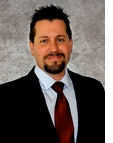
| August 2014 | Past Issues | Advertise | Affiliates Search | PCOC.org |
|

PCOC INSURANCE: BENEFITS OF MEMBERSHIP
In the 1980s
an insurance market crash threatened to put many pest control operators out of
business. PCOC leadership reasoned that there had to be a better way to protect
the pest control industry, so they rose to the challenge and created an
insurance committee and hired key insurance professionals to help solve the
problem. In 1989 the PCOC insurance program launched, offering the most
comprehensive insurance program to the pest control industry at competitive
rates. Many
insurance programs have gaps in their coverages — protections you thought you
had but find out is not there when it comes time to pay a claim.
PESTICIDES ARE CRITICAL TO PROVIDING A SAFE, RELIABLE FOOD SUPPLY
One of the issues we run into as advocates for the pest control industry is emotional-based decision making. Many well-meaning people lose sight of the benefits of pesticide use, especially in agriculture and wish to ban all substances without even looking into scientific research or solutions.
This month, I read an article in the Sacramento Beewritten by Brian R. Leahy, director of the California Department of Pesticide Regulation. He briefly talks about the benefits of pesticide use to the food industry in a thoughtful and well-articulated manner. Excerpt: "Many Californians think of pesticides as something only farmers use. They don’t realize that pesticides touch many other areas in their lives. We all reap the benefits of pesticides. They are part of the complex processes required to deliver safe food, water and health care, yet some consumers are reluctant to accept the risks required to create those benefits. When something seems foreign to us and we don’t understand its benefits, it becomes vulnerable to attack by seemingly well-meaning people and organizations." (Read whole article) NPMA QUALITYPRO OFFERS FLEET MANAGEMENT TOOLBOX
FAIRFAX, VA—The National Pest Management Association’s (NPMA’s) QualityPro has launched the Fleet Management Toolbox. The Pest Management Fleet provides a unique and important opportunity for companies to generate value far beyond the basic purpose of carrying equipment, supplies and pest management technicians to customer sites. From vehicle inspection logs to projected operating cost analysis for today’s most popular fleet vehicles, QualityPro’s Fleet Management Toolbox gives professionals the resources they need to maximize fleet effectiveness. The QualityPro Fleet Management Toolbox is available online for QualityPro member companies at www.qualityprotools.org. PCOC’s PEST ED 2015 – EDUCATIONAL CONFERENCE The dates for the upcoming Pest Ed 2015 have been booked. We are looking at January 13 in Montebello for Southern California and January 15 in Sacramento for Northern California. We will have more information in later NewsBriefs and in upcoming events on the website in the next few months as we continue to set up speakers. Come join us for an all-day event that provides an abundance of continuing education credits, good food, and updates on the latest materials and equipment from some of the top vendors in the state. |
Pest Control Operators of California |
 |